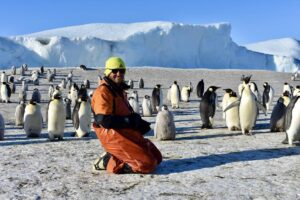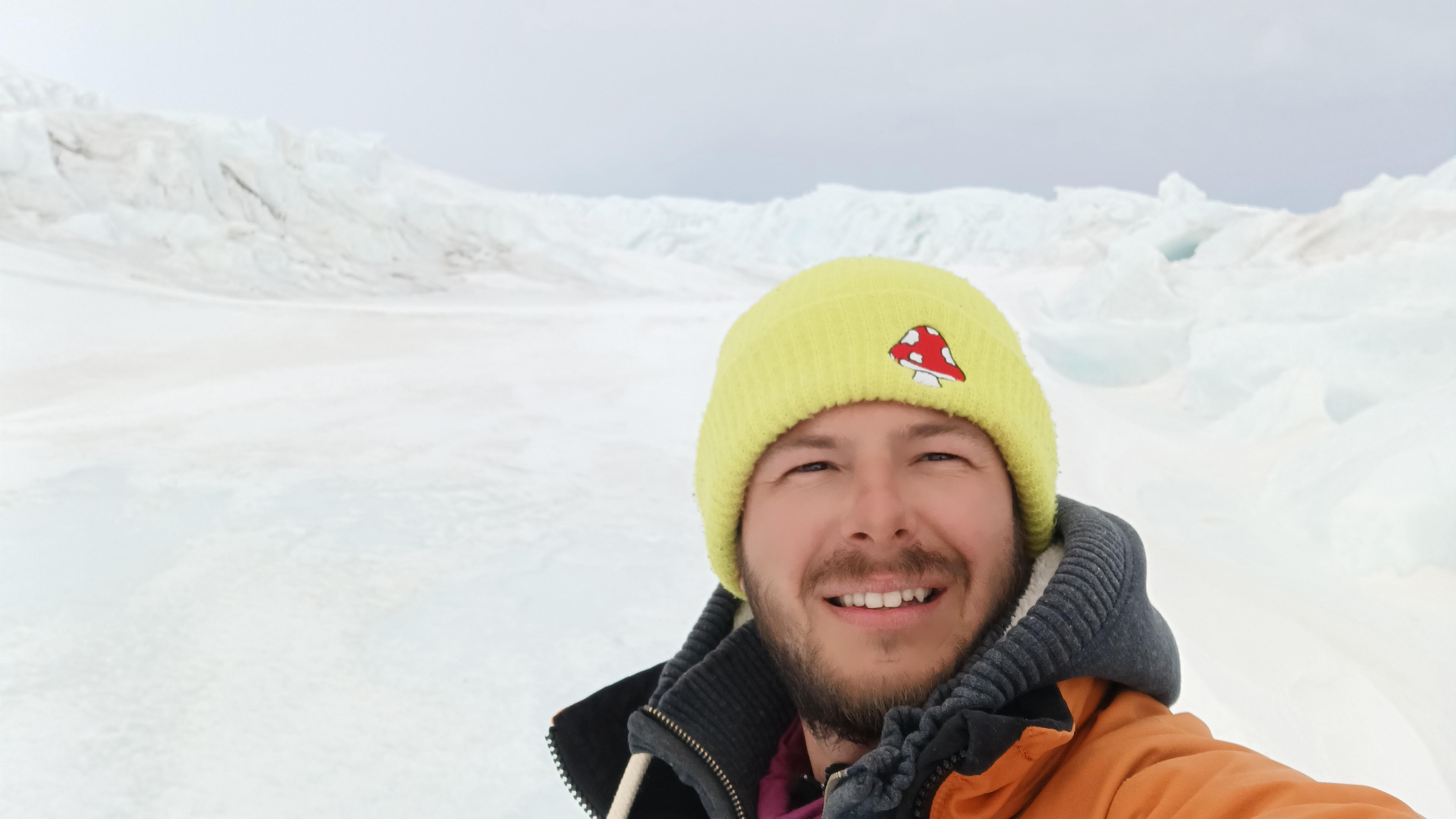Dr. Martin Tournier | Moss Landing Marine Laboratories/SJSU Research Foundation
Presenting: "Modeling the habitat use of a fearless deep-diver, the Emperor Penguin in the Ross Sea"
Hosted by the Vertebrate Ecology Lab
MLML Seminar | April 30th, 2025 at 4pm (PST)
Watch the Live Stream here or here


Modeling the habitat use of a fearless deep-diver, the Emperor Penguin in the Ross Sea
Emperor penguins undergo an energetically demanding annual molt, requiring them to remain on stable ice where they must fast until their feathers regrow. The foraging strategies following the post-molt period are critical, as individuals must replenish lost energy stores before the next reproductive fast. However, understanding habitat use during this period remains challenging due to the remoteness of the Eastern Ross Sea and the scarcity of available environmental data. To address this, we modeled the habitat use of post-molt emperor penguins using environmental variables from a mix of data sources. Our analysis aims to assess habitat selection and investigate whether the preferred foraging strategies differ between individuals. This study highlights how a mix of data sources can improve ecological modeling in data-scarce polar regions and help us understand the foraging behaviors of emperor penguins in response to environmental constraints.
Dr. Martin Tournier
Martin comes from France, where he completed two MS degrees in Oceanography and Marine Ecology, and Ecological Modelling. He got his Ph.D. from La Rochelle Université where his work focused on characterizing the habitat of deep-diving mammals. He worked with active acoustic data obtained from dataloggers that were deployed on southern elephant seals. He developed novel mathematical approaches to model the three-dimensional habitat of elephant seals.
While interested in many aspects of marine ecology, his primary research interest is to investigate the different diving and foraging strategies displayed by marine predators, both within and among species, with the goal of determining how environmental forcing will influence behavior on short and long-term scales. This knowledge will provide insights into how their 3-dimensional habitats are changing and how predators may respond to these changes. He is thrilled to address some of these questions with Emperor Penguins in the Vertebrate Ecology Lab. As a student, he helped to organize conferences, and he hopes to organize some short technical workshops during his time here. Outside of the lab, he enjoys spending time sailing, diving, cooking & baking, and hiking.

